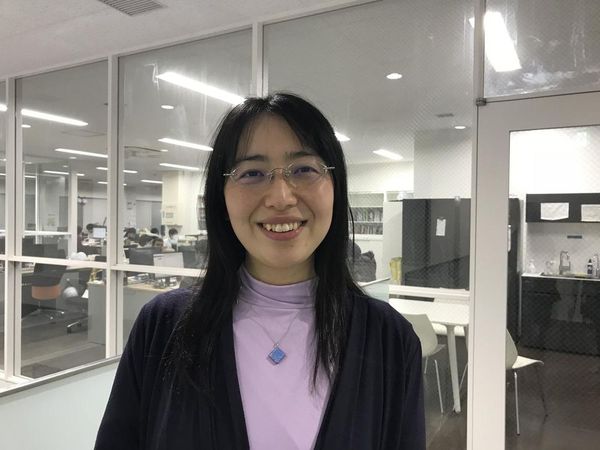Doctorates are normally thought of as researchers. But then, doctorates take on various roles aside from doing research. This struck me again while visiting to the Institute of Transformative Bio-Molecules (ITbM). I had previously written about the significant success of the ITbM in carrying out research that merged together different disciplines focusing on "molecules." Such unique research efforts have been made possible by the participation of doctorates who are not directly doing the research, but work as equal partners with researchers.
Recent news often tells that circumstances around doctorate holders have been hard. At the end of February, the National Institute of Science and Technology Policy (NISTEP) of the Ministry of Education, Culture, Sports, Science and Technology (MEXT) released the Second Report on Japan Doctoral Human Resource Profiling. Among the wide range of findings in the report, which points out that employment of doctorates in the private sector is not growing and stable jobs are hard to get in academia, especially in physical sciences. Another data showed that around 60% of university-based program's doctoral degree holders, who are neither employed nor international students, are in debt from student loans and such upon completing their degree. Reflecting such reality or not, the enrollment on doctoral courses, which peaked at 18,232 in fiscal 2003, has dropped by more than 3,000 by fiscal 2016.
But there is no doubt that doctorates are so important to Japanese society as highly skilled human resources. We need to expand the platform for them to fulfill their potentials. One approach is to diversify the career paths of doctorates.
When I was covering science news in the U.S., I was surprised to see how doctoral degree holders exert influence, not just in the narrow sense through their research but in a variety of places, thinking "What a big difference with the situation in Japan!" From journalists to congress staff, in museums as well as in venture companies -- I met doctorates who work by leveraging their expertise everywhere. I heard that there are also doctoral degree holders in banks, for example, who diligently drop in on academic conferences to learn new research trends and apply them to making investment decisions, which made me wonder if similar things are happening in Japan. But then listening to their stories also made me realize the basic difference in doctoral education to begin with -- doctorates in Japan seem to be considered experts specializing in a narrow field while U.S. doctorates are thought to have 'broad' expertise with skills to tackle various issues.
ITbM's Designated Assistant Prof. Ayako Miyazaki obtained her doctoral degree in chemistry at Imperial College London in the UK and is responsible for public relations in Japan and abroad. Looking back on her student days in London, she says, "Doctorate friends went on to medical school or worked for the tube railway. Almost no one remained in the same course in the university." After returning to Japan, she worked at a manufacturing company, then became a Japan Science and Technology Agency (JST) research project team member and was doing research in the field of chemical biology before joining the ITbM. She also did some research initially, but now mainly works on public relations as balancing both became unmanageable.
Although she wanted to see her own research develop into something useful to society, Miyazaki felt that it was hard to get that sense of fulfillment from basic research, and felt attracted to public relations work because it involved social interaction while making full use of her expertise. She also wished to connect different cultures, after personally experiencing difficulties when she returned home from abroad at 10. She says there are many things people do not know -- the feeling of excitement that is possible in the world of science, the cultural differences -- and she hopes to make a career communicating and sharing these with the world. She felt sad moving away from experimental research where she could do hands-on work, and there was a time when she felt unsure of the future, but all that had been allayed after she made up her mind about her path forward.

Designated Assistant Prof. Ayako Miyazaki is in charge of international public relations, among others.
Miyazaki was invited to the ITbM by Designated Associate Prof. Ayato Sato, who was in the same JST project team. Sato is one of the top people who have done more to build the Institute to what it is today, according to ITbM Director, Prof. Kenichiro Itami...>>read more on the Meidai Watch